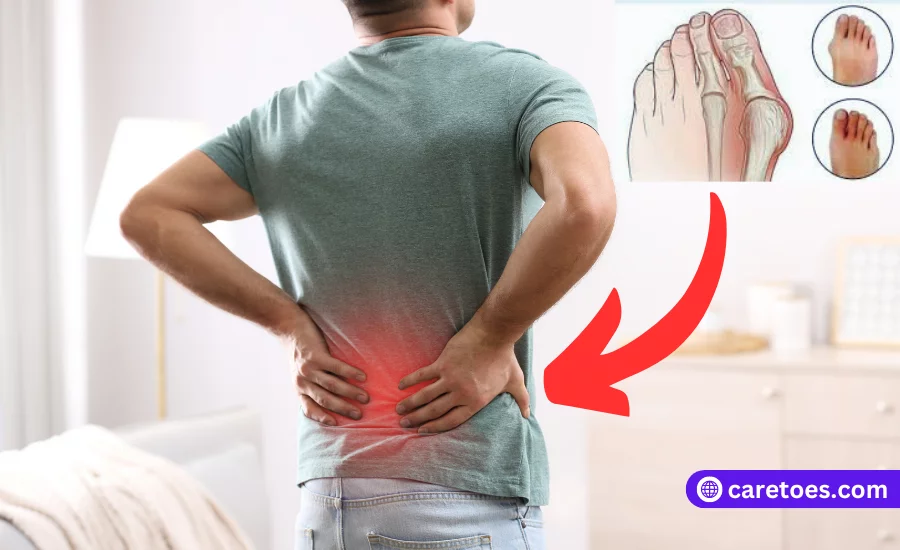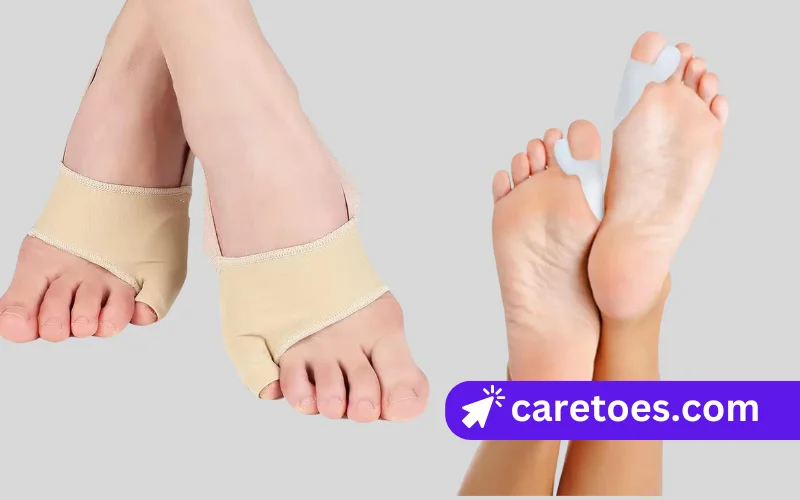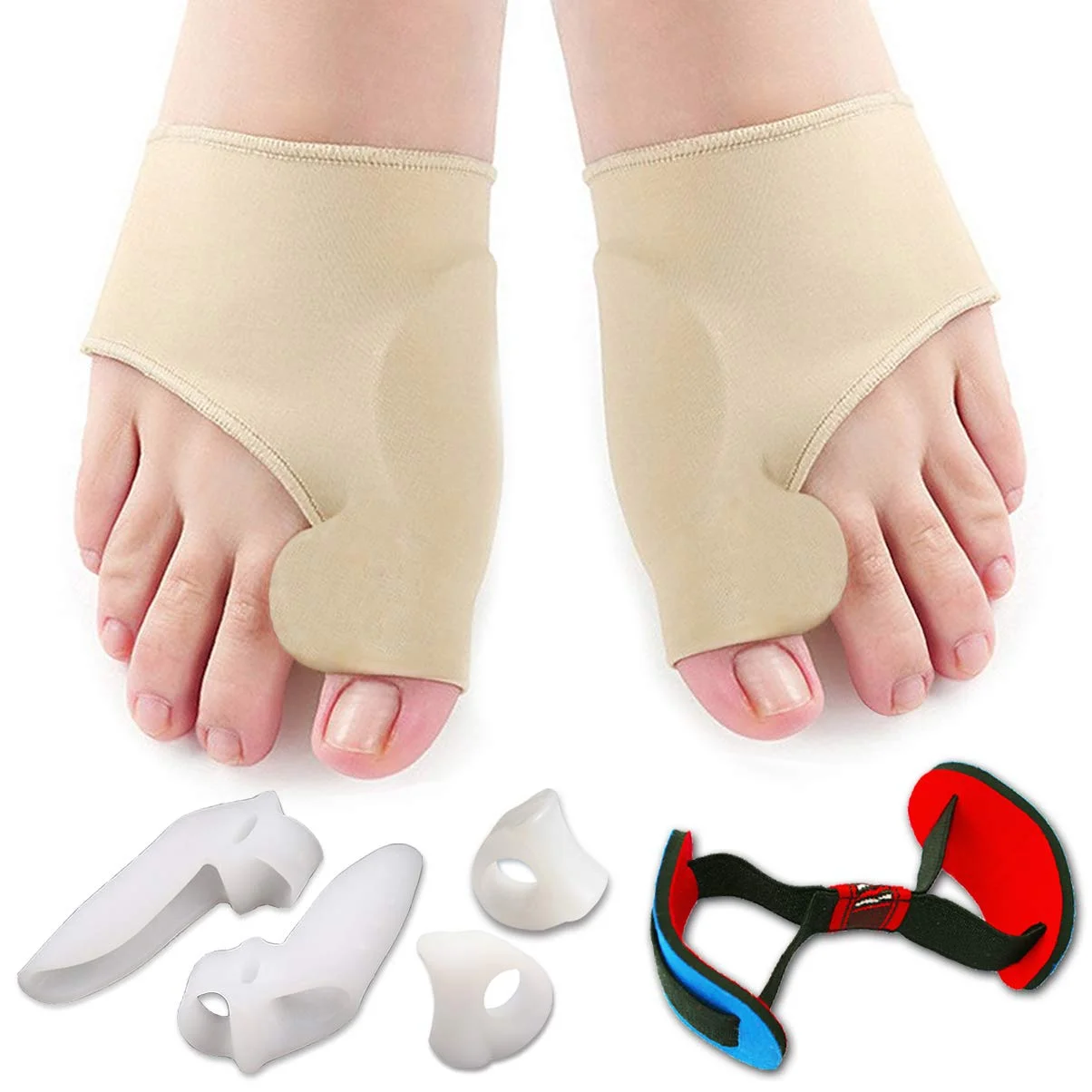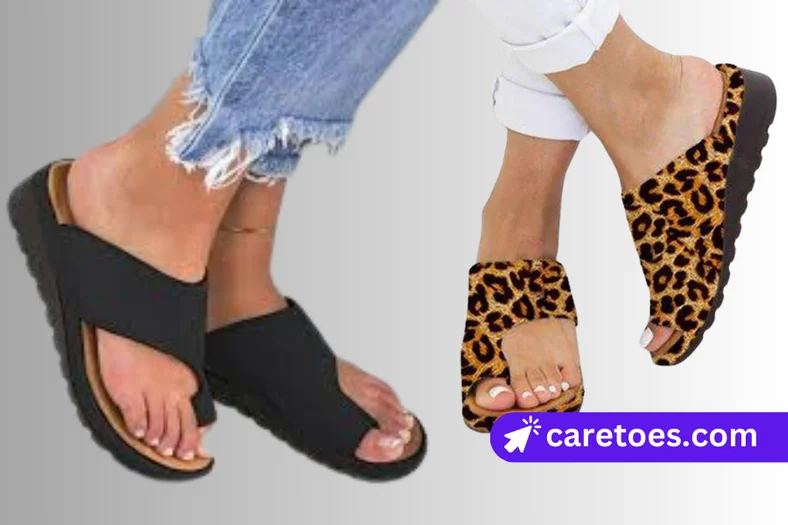Bunions can indirectly cause back pain. Poor foot alignment affects posture, leading to strain on the back.
Bunions are bony bumps that form on the joint at the base of your big toe. They can cause significant discomfort and can lead to improper foot alignment. This misalignment can alter your posture and gait, placing additional strain on your back muscles.
Over time, this can lead to chronic back pain. Addressing bunions early and using proper footwear can help alleviate these issues. Consulting a healthcare professional for tailored advice is always a good idea. Proper foot care is essential for overall musculoskeletal health.
Table of Contents

Credit: www.evercorelife.com
Introduction To Bunions And Back Pain
Bunions are bony bumps on the side of the big toe. They form when the big toe pushes against the next toe. This force causes the joint to stick out. Bunions can be painful and make walking hard. They often develop over time due to tight shoes or high heels. Genetics can also play a role in bunion formation.
Many believe back pain is only due to back injuries. Poor posture and lack of exercise are also common causes. Some think back pain never links to foot problems. This is a misconception. Foot problems like bunions can affect the way we walk. This can lead to back pain over time.
Anatomy Of Foot And Spinal Connection
The foot has many bones, muscles, and ligaments. It supports your body weight. Each part of the foot works together. A bunion is a bump on the side of the big toe. This can change how you walk. Walking differently can affect other parts of your body.
The spine keeps you upright. It has many vertebrae and discs. Good posture helps the spine. Bad posture can cause back pain. Bunions change how you stand and walk. This can lead to poor posture. Poor posture may cause back pain. Keeping feet healthy helps keep the spine healthy.
The Biomechanics Of Walking
Bunions change how you walk. They cause the big toe to turn inward. This puts extra stress on your foot. Your gait becomes uneven. You may start to limp. This can lead to further problems. You might feel pain in your knees and hips. Over time, back pain can develop.
The kinetic chain starts at your feet. Each joint affects the next one. Bunions disrupt this chain. They force your body to adjust. These adjustments can strain your muscles. Your spine may also suffer. This can result in chronic back pain. Proper alignment is key for pain-free movement.
Research On Bunions And Back Pain
Bunions can potentially lead to back pain due to altered walking patterns and posture. Foot discomfort often impacts overall body alignment.
Studies Linking Foot Disorders To Back Pain
Several studies suggest a link between bunions and back pain. Bunions can affect your posture. Poor posture can lead to back pain. Foot disorders like bunions cause changes in walking patterns. These changes can strain your back muscles. Some researchers believe that treating bunions can reduce back pain. A few studies show that corrective surgery for bunions improves posture. Improved posture can alleviate back pain.
Contradictory Evidence
Not all research agrees on the link between bunions and back pain. Some studies find no direct connection. These studies suggest that other factors may cause back pain. Factors like age, weight, and lifestyle might play a bigger role. More research is needed to fully understand this link. Contradictory evidence shows the need for more detailed studies. Patients should consult with their doctors for personalized advice.
Personal Stories And Testimonials
Many people share their stories about bunion pain. Some talk about pain in their feet, while others mention back pain. They often describe how their daily life is affected. Walking and standing become hard tasks. This pain can be frustrating and tiring. Many find relief with proper shoes and treatment.
Some individuals have found ways to improve their condition. Physical therapy is a common solution. Others speak about surgery and how it helped them. Recovery stories give hope to many people suffering. Regular exercises also show positive results. Many feel better and live a more comfortable life.
Treatment Options For Bunions
Footwear changes help a lot. Choose shoes with a wide toe box. Padding and taping can reduce pain. Orthotic devices provide support. These help to align the foot better. Medication can reduce inflammation and pain. Ice packs can also help reduce swelling. Exercises can strengthen muscles around the bunion.
Surgery may be needed if other treatments fail. Bunionectomy is the most common surgery. It removes the bony bump. Osteotomy involves cutting and realigning bones. Arthrodesis fuses the joint together. Exostectomy removes the bump but not the bone. Always consult a doctor before choosing surgery.
Preventive Measures And Lifestyle Adjustments
Choosing the right shoes can prevent many foot problems. Shoes should fit well and have a wide toe box. Avoid high heels and tight shoes. Look for shoes with good arch support. Comfortable shoes can help reduce pain. Orthotic inserts can also provide extra support. Changing shoes regularly is important. Worn-out shoes can cause foot pain.
Strong feet can help prevent bunions and pain. Simple exercises can strengthen foot muscles. Try picking up marbles with your toes. Toe stretches can also help. Another good exercise is calf raises. Balance exercises are beneficial too. Regular foot exercises can reduce pain. Consistency is key for good results.
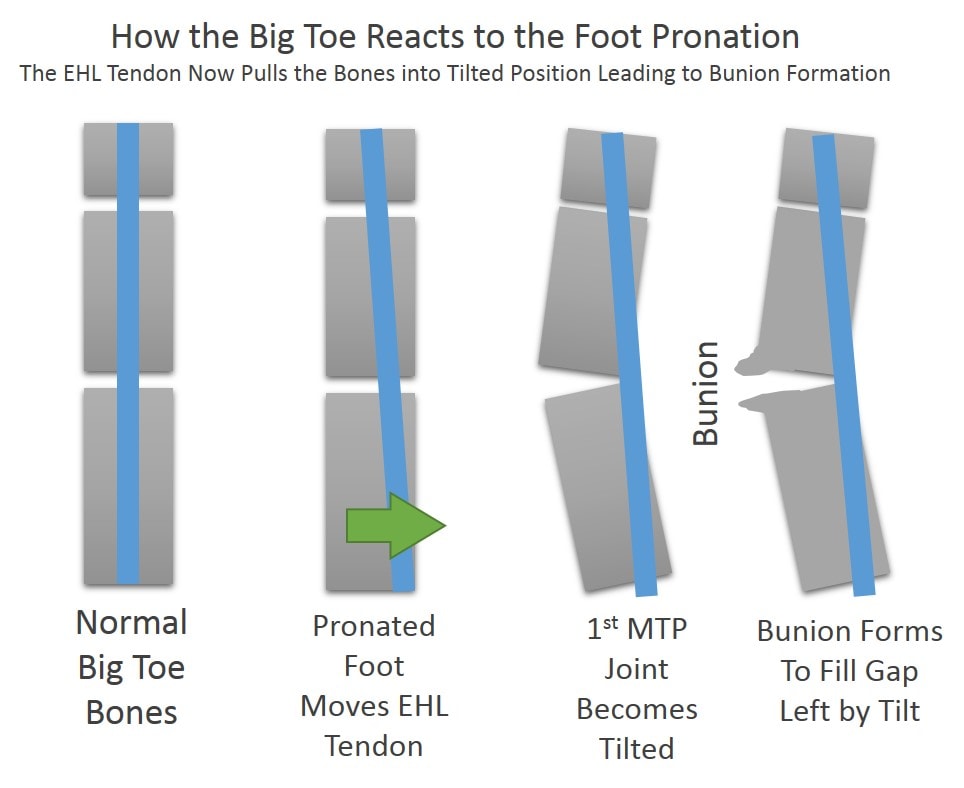
Credit: regenexx.com
Expert Opinions And Medical Advice
Bunions may lead to back pain due to altered walking patterns. Misalignment in the feet can impact posture and spine health. Expert advice suggests addressing bunions early to prevent further complications.
Podiatrist Recommendations
Bunions can affect your walking. They change the way you step. This can lead to other problems. Back pain is one of them. Doctors suggest wearing comfortable shoes. Shoes should have enough space for your toes. This can reduce the pain. Orthotics can also help. These are special shoe inserts. They keep your feet in the right position.
When To Seek Help
See a doctor if you have severe pain. Pain that does not go away needs attention. If walking becomes hard, get help. Redness or swelling can also be a sign. These signs may need medical care. Early treatment can prevent more problems. It can keep you from having back pain.
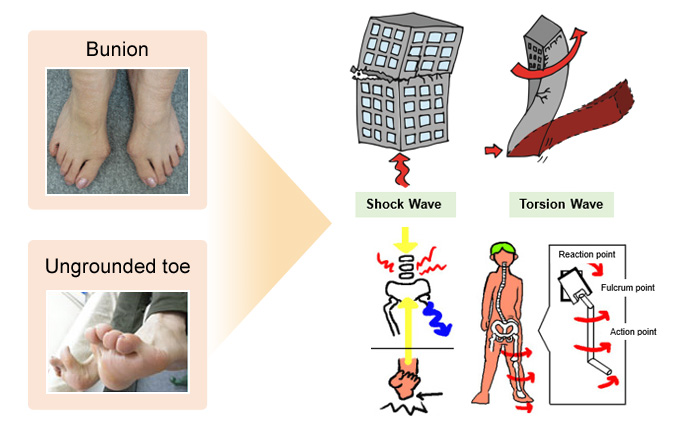
Credit: www.bunion-japan.com
Frequently Asked Questions
Can A Bunion Make Your Back Hurt?
Yes, a bunion can cause back pain. Misaligned walking due to bunion pain affects posture, leading to back issues.
Can Bunions Affect Other Parts Of The Body?
Yes, bunions can affect other parts of the body. They may cause pain in the knees, hips, and lower back due to altered gait.
Where Does Bunion Pain Radiate?
Bunion pain often radiates to the big toe joint, foot arch, and sometimes the surrounding toes. It can cause discomfort while walking.
Can Foot Problems Cause Back Pain?
Yes, foot problems can cause back pain. Misaligned feet affect posture, leading to strain on the lower back muscles. Proper footwear and orthotics can help.
Conclusion
Understanding the link between bunions and back pain is crucial. Addressing bunions early may prevent future complications. Seek professional advice for proper treatment. Prioritize foot health to enhance overall well-being. Remember, healthy feet contribute to a pain-free back. Stay informed and proactive about your health.

